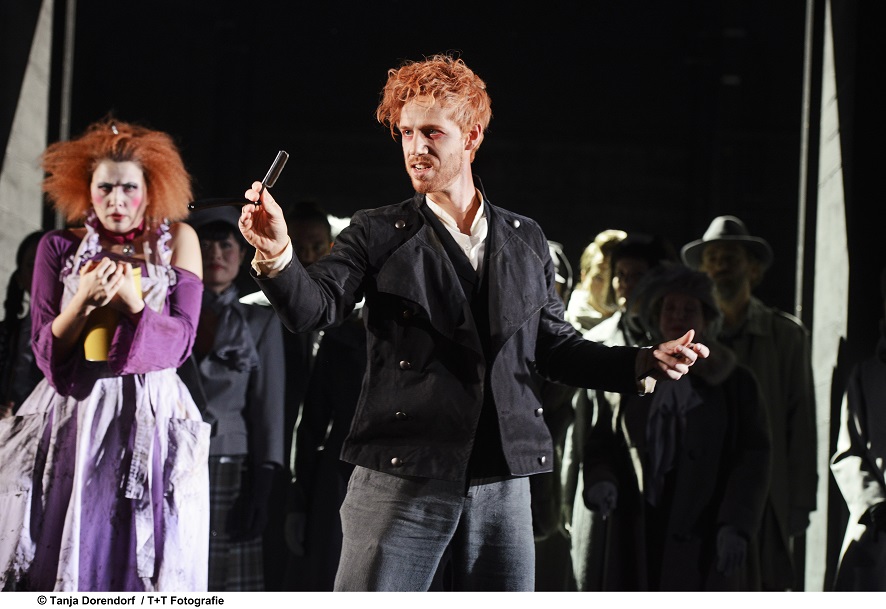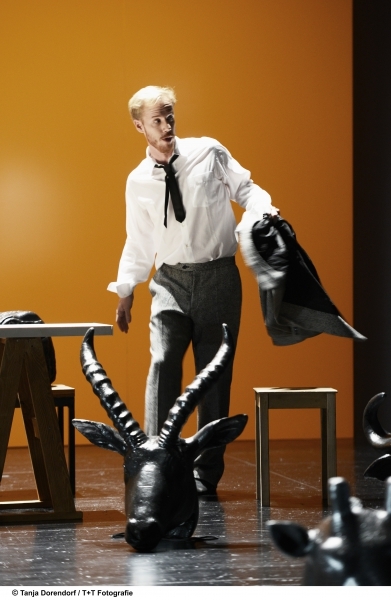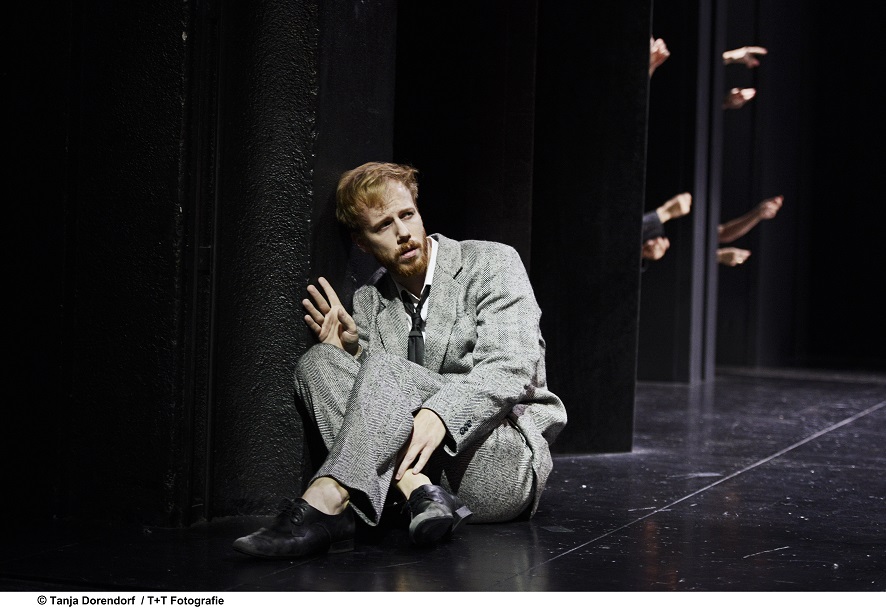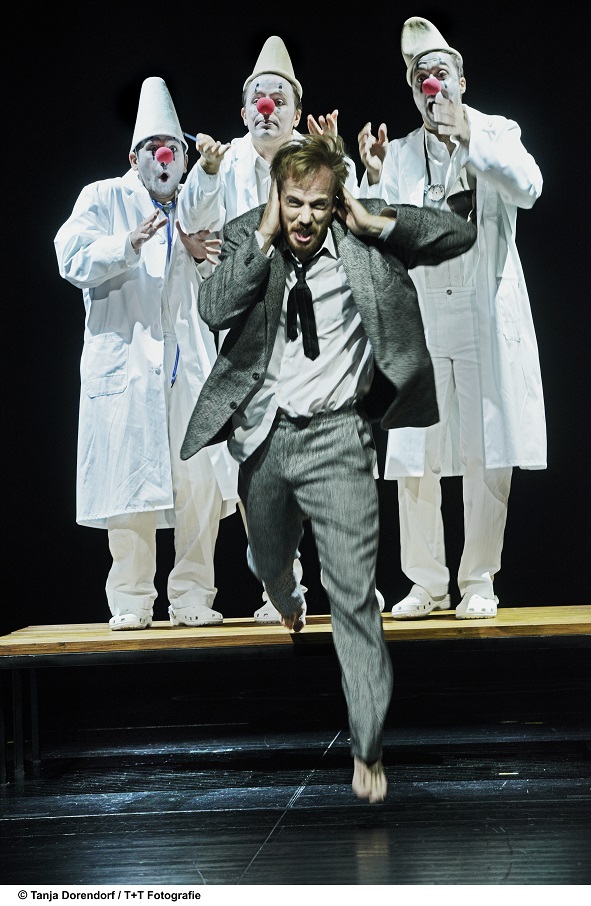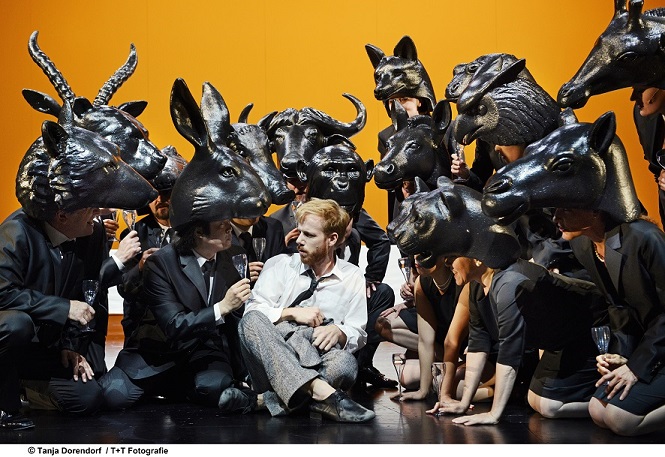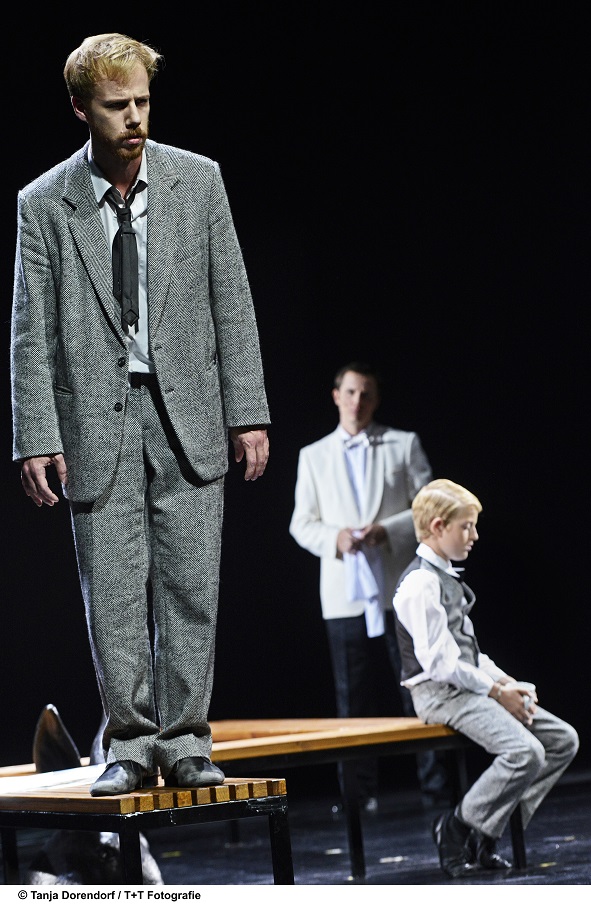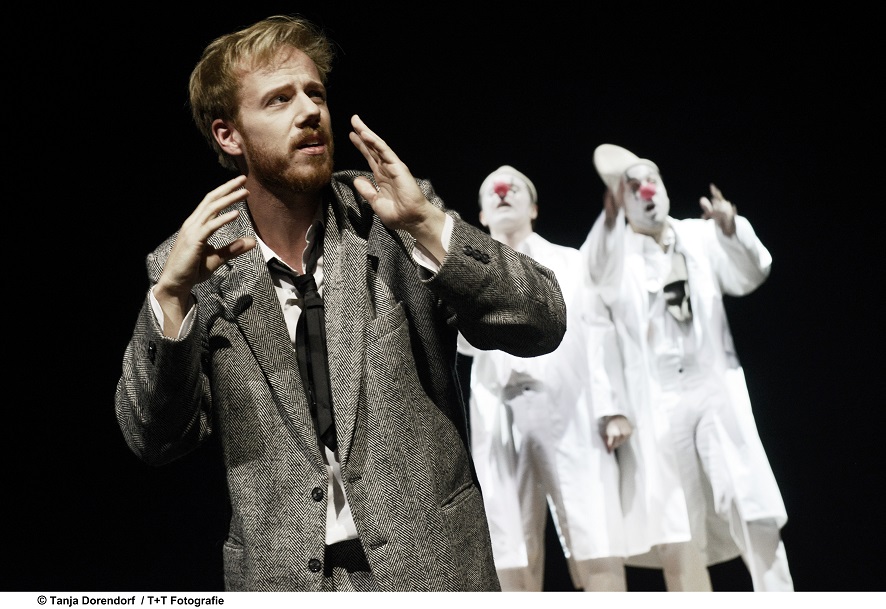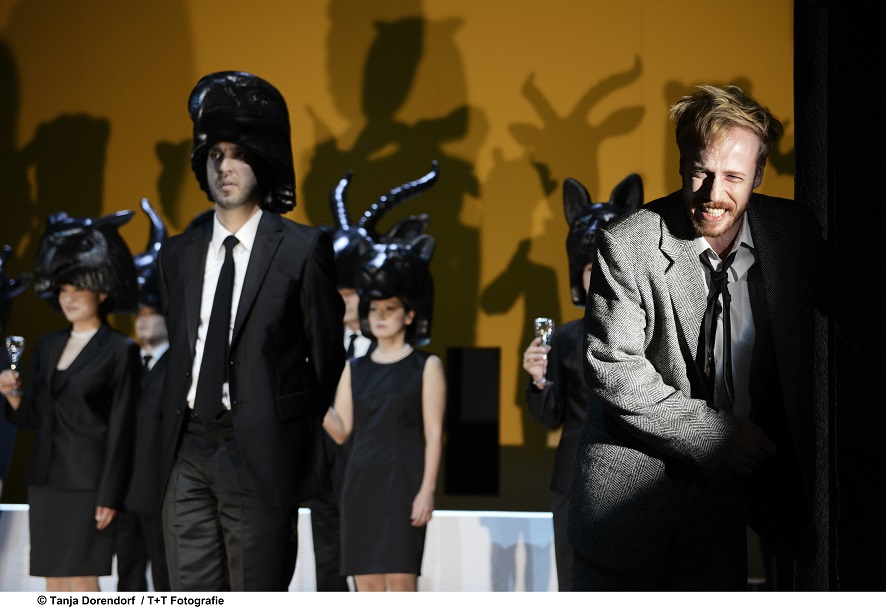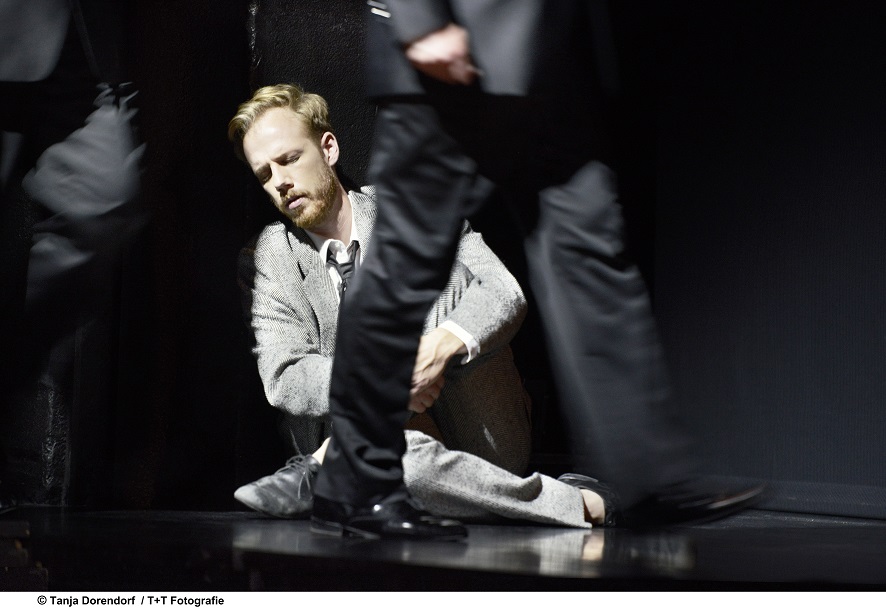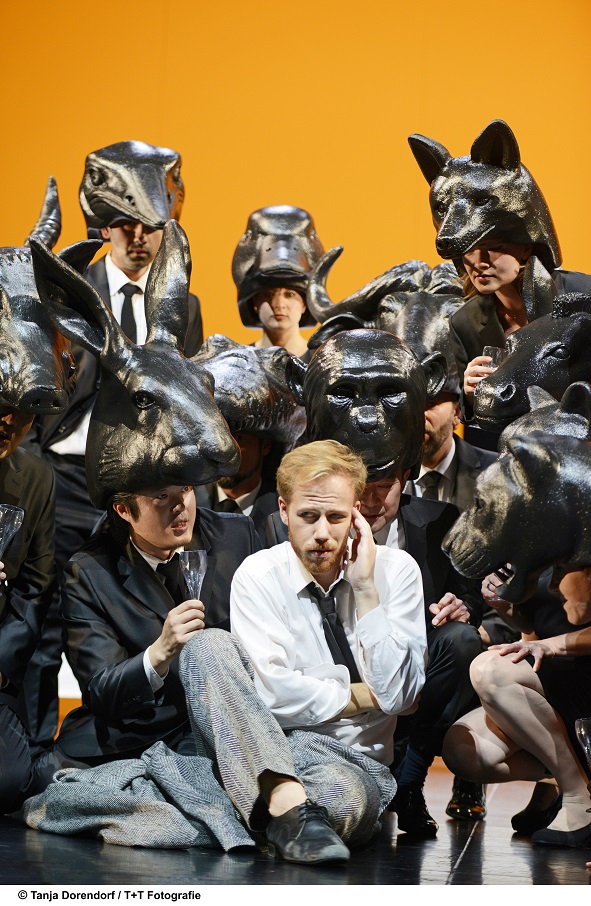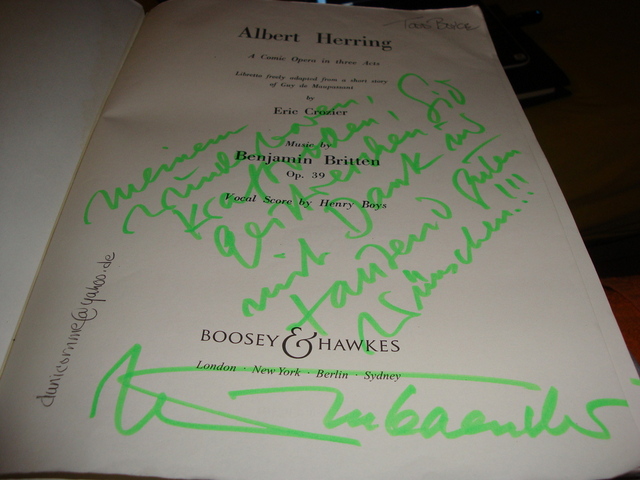Wow, what an incredible ride it has been to the premiere of Sweeney Todd - full of ups and downs, challenges, and fun. The premiere was just over a week ago, and we've had one other performance since then, which was the tremendously successful Caritas Luzern Theater Gala, where they were able to raise over 60,000 CHF for people in need! We were all thrilled to be a part of it and help out in our small way. It was our best performance yet, but I'm really looking forward to future performances and honing the piece even more: it's incredibly complex and timing is everything. Here are some of my favorite shots from the show (thanks so much to Tanja Dorendorf of T+T Foto for these fantastic photos):
Also, in the run-up to our premiere of Sweeney, our local newspaper printed an interview between me and Urs Mattenberger (the head music critic at the paper) about my time at the Luzern Theater thus far. If you're interested to read it, I have included a translation of the text below.
"I will always be homesick for Luzern"
SINGERS He has a dream-role in the musical-thriller 'Sweeney Todd': Todd Boyce takes stock of five years at the Luzerner Theater, which he will be leaving with the change in directorship.
Interview by Urs Mattenberger
Born in 1983 in Wisconsin, the American Todd Boyce has belonged to the ensemble of the Luzerner Theater for four years. Before he too leaves the house with the change in directorship at the end of this season, he will stand on stage in four final productions - first Britten's 'Albert Herring' (two more shows on November 13th and 29th), and now in the musical-thriller 'Sweeney Todd' by Stephen Sondheim. There Boyce plays the main role of the barber, who was innocently condemned and who with his straight razor undertakes a rampage for revenge.
Todd Boyce, with the change in directorship you will be leaving Luzern after five seasons. Are such shifts simply part of the job description, or does melancholy also come into play?
Obviously, a new Artistic Director wants to present an individual face. Of course, the principal performers are a part of that, because they are effectively the eyes or the mouth in this face. In that way, I consider such a change quite normal. However, emotions also come into play - due the the theater, but also due to Luzern. (He indicates the windows of the theater's foyer and beyond the Jesuit Church and the Reuss river.) You can look, walk, or jog wherever you like - this city is beautiful in every direction. I think I will always be a little homesick for Luzern.
The theater here is deemed to be a springboard for young singers. What is next for you?
I am happy that I can switch to the ensemble in Bern as of next season. That is a step forward not least because the house is bigger and they have the possibility to engage more guest singers. It is also important that it has a bigger orchestra pit, which makes a wider range of repertoire possible than here in Luzern.
In regard to the plans for a new theater here in Luzern, the significance of an ensemble is also in discussion. You are switching now from one to another. What is the advantage in comparison to working free-lance?
For young singers, an ensemble has the big advantage that one can build up his repertoire with important roles and allow the voice to develop. It is critical that the selection for this development is considered, and that is where Domonique Mentha here in Luzern paid close attention. Additionally, in an ensemble you can sing a piece for 30 performances and therefore in later performances also try some things out, for example, you can develop a role in a somewhat different direction.
You have also been brilliant in comic rolls - from Bel Canto to the musical-thriller "Sweeney Todd." Does that indicate a predilection for American Showbiz, as a reviewer once put it?
No, there I would not like to tie myself down at all or get pushed into a corner. In which direction I will develop - more character, comic, or serious roles - I myself can't even really say. The male voice continues to develop and gains size until the age of about 40. Until then, many doors are still open. And in my early 30's, I'd like to still keep them open.
You won't be singing much Wagner though. In a questionnaire for a competition you joked that you have to watch out you don't fall asleep.
That was a joke with a wink at my brother, who is also a singer and who, with his heavier voice, seems predestined for Wagner. But Wagner operas really are very long and composed so that one can flounder if he doesn't understand all the references. My voice was never meant for a role like Wotan, but I've already studied the role of Wolfram in "Tannhäuser" and found that to be absolutely fascinating.
On the Blog on your homepage, you praised the highly conventional production of Puccini's "La Boheme" at Luzerner Theater. As a singer, is one happy when he finally is allowed just to sing and doesn't have to do gymnastics onstage?
No, this had nothing to do with that. We rehearsed with that director for weeks until every gesture and every detail was finely tuned. Of course, it was not a brand new vision in that production, but that is not always necessary. For me, productions are always strong when everything is developed out of a basic idea. That can be, as in this case, simply the piece as it is, but also as with our production of "La Traviata," a entirely new interpretation. I just don't like it when effects are super-imposed, which belong neither to the one nor the other.
According to the press-release, in "Sweeney Todd" the director Johannes Pölzgutter has taken the shock-element out of the show and transported it into the imagination of the audience. To which of the described categories of production does that belong?
First of all, I have to say that it is fantastic fun to collaborate with Pölzgutter. He has so much imagination and so many ideas, that they can barely be accommodated in one piece. As far as the gory shock-elements go: they absolutely exist in our production, but they are not prominently displayed. Rather they are presented with humor and also with a lot of imagination as an accessory to the characters, which are the main focus here.
You belong naturally to a generation which grew up with electronic games...
You mean...(he moves his fingers on an imaginary controller)?
Yes, what was your favorite game?
"Super Mario Bros." of course. (laughs)
Today's games are much more spectacular. Does theater by the same token need to pump up the shock-dose in order to keep up?
No, I don't think so. Theater works differently and is not a direct competitor to film or new media. In the theater, the sensory experience is the determining factor and it is where you can find an interaction between the performance onstage and the audience. That is what makes it so special. The audience and the way in which they react, laugh, boo, or perhaps even take a nap, that contributes to the energy of every performance.
Was there a key moment in this respect over your five years here in Luzern?
My biggest challenge in that respect was probably "Kiss Me, Kate." That was my first appearance with spoken dialogue, and had no idea if and when the audience would laugh. It really is the audience that makes each evening different and interesting.
I have only ever once experienced an assault of boos here in Luzern, when Orfeus (in the Gluck version) sexually abused the the corpse of Euridice. Does the audience in Luzern react more reservedly than elsewhere?
During my time in the Opera Studio in Munich, the reactions were somewhat more severe, because the audience there doesn't let you get away with anything. But I would not say that Luzerners are reserved. Quite the opposite. In conversations with audience members before and after performances or on the street where I am sometimes spontaneously approached, I am amazed at how varied and open our audience is. That does not make the farewell any easier.




